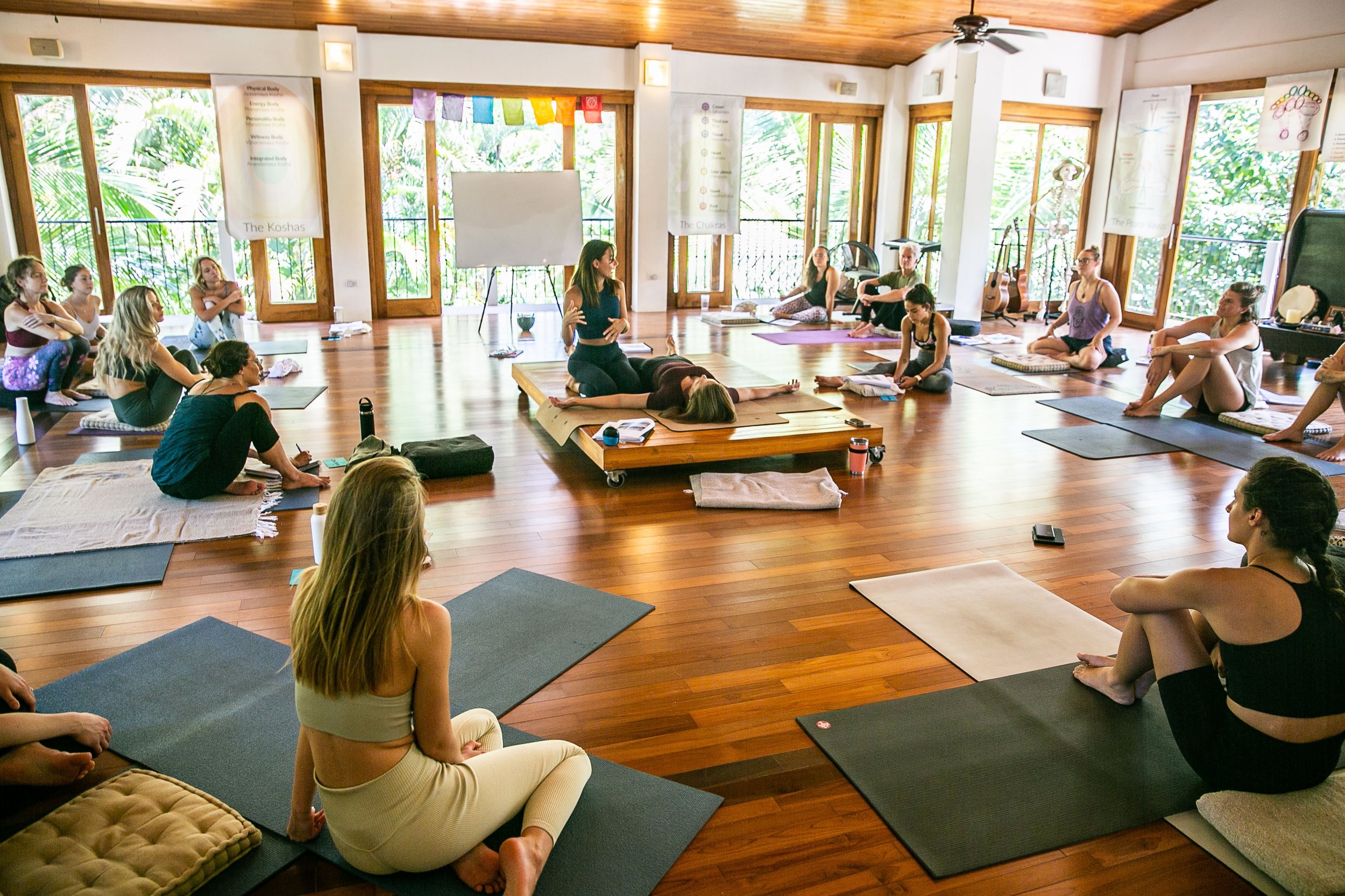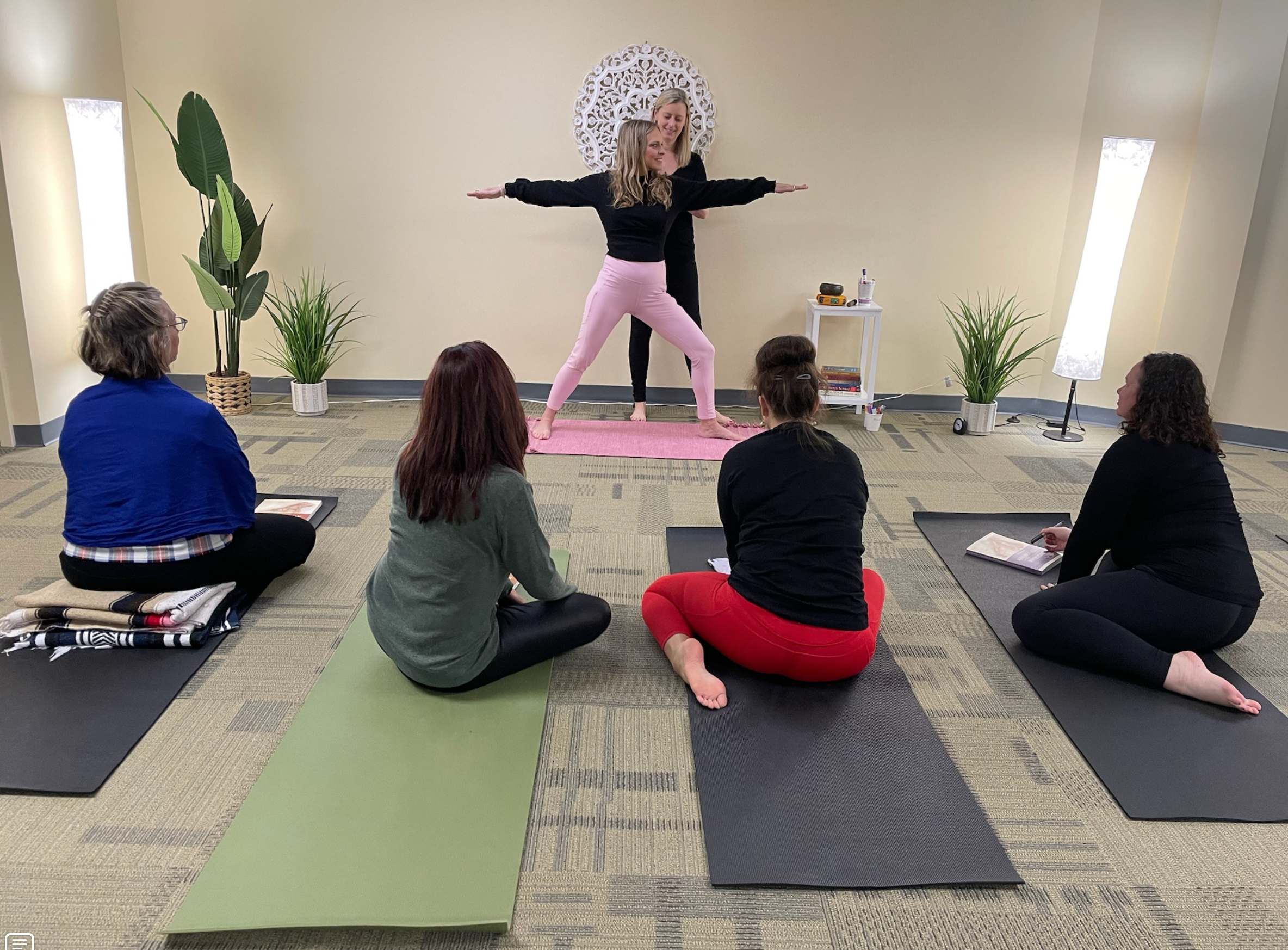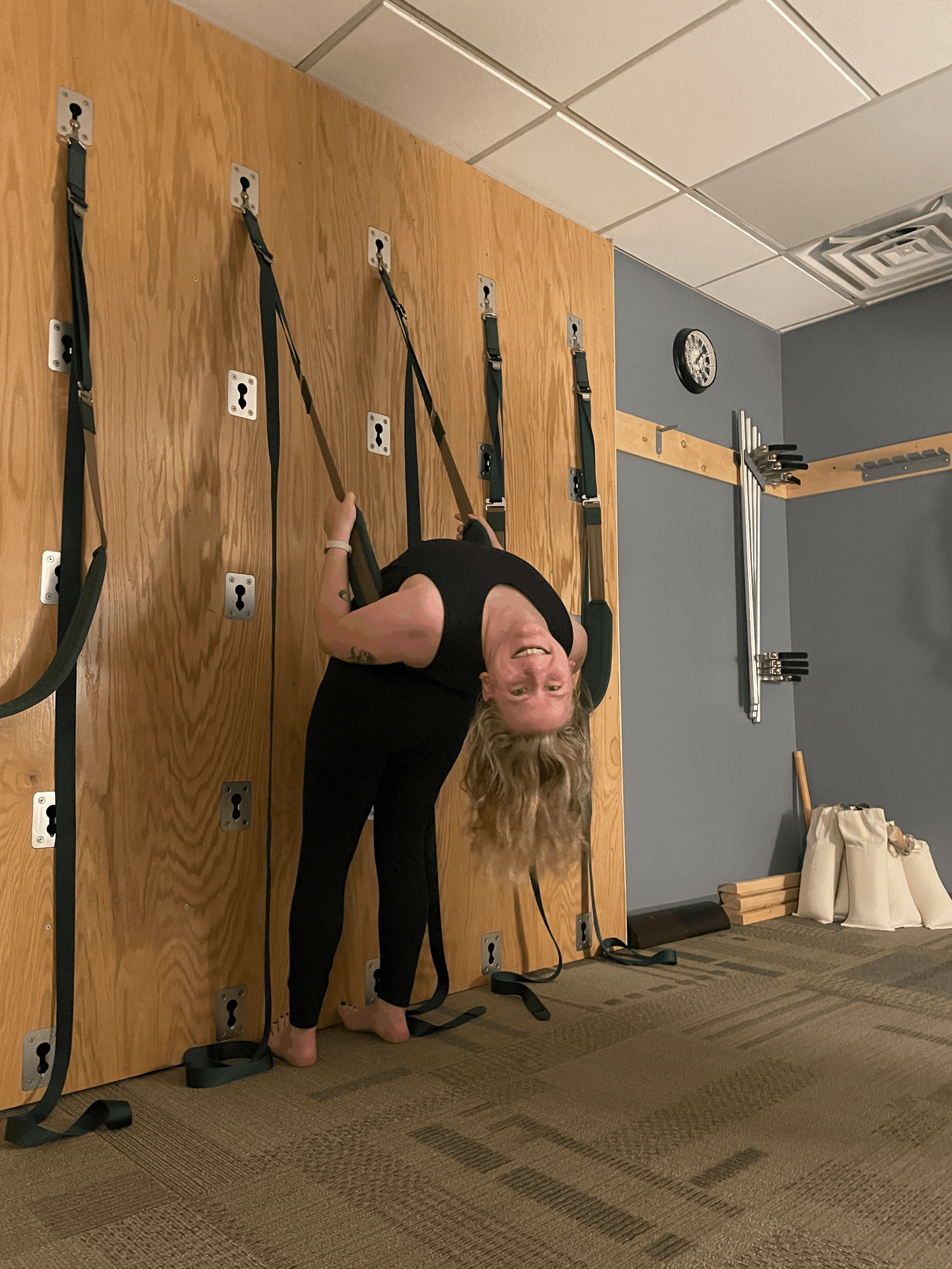
300-hour Advanced
Therapeutic Yoga Teacher Training
Begins Winter 2026
Directed by Julianne Hutchcraft and Prema Snyder
1-Week Immersive Retreat
This 300-hour training features a one-week long retreat at Cedar Crest Lodge for an immersive experience of yoga and meditation led by the Therapeutic Yoga Institute’s co-founders Julianne and Prema.
Specialized Therapeutic and Great Yoga Wall Training
Learn advanced anatomy, physiology, and subtle body systems with a therapeutic focus. Develop skills in using props, modifications, and restorative practices to support healing and well-being. This 300-hour program includes a 50-hour training in the therapeutic application of the "Great Yoga Wall" and a 50-hour training in "Yoga Wall Level 2" to deepen your understanding and application of these specialized tools.
Client-Centered Assessment and Adaptive Practices
Gain expertise in client assessment, case study analysis, and creating personalized yoga therapy plans. Learn to adapt yoga practices for diverse needs and conditions with a trauma-informed approach.
Integrative Mind-Body Approaches and Mental Health
Explore the integration of mindfulness, meditation, and breathwork to support mental and emotional health. Understand how to apply yoga therapeutically for stress, anxiety, trauma, and other mental health concerns.
Professional Ethics, Research, and Continuous Development
Embrace a strong foundation in ethical practices, professional boundaries, and the importance of evidence-based approaches. Stay committed to ongoing learning and collaboration with healthcare professionals for a comprehensive yoga therapy practice.
Training Pillars
The Therapeutic Yoga Institute’s 300-hour Yoga Teacher Training is built on 3 foundational pillars that guide our comprehensive curriculum. Through a systematic and supportive progression, our program empowers existing yoga teachers to deepen their expertise, refine their skills, and effectively integrate therapeutic principles into their advanced teaching practice.
-
The Great Yoga Wall is a powerful tool for promoting fascial health by allowing targeted stretching and controlled resistance, which can help release fascia, the connective tissue that surrounds muscles and organs. By using the wall, you can create gentle traction and sustained holds that lengthen and hydrate the fascia, improving elasticity and reducing tension throughout the body. Additionally, wall-supported postures can help in realigning fascial lines, promoting more efficient movement patterns, and preventing injuries. Understanding how to use the wall to manipulate fascia enhances overall mobility, reduces chronic pain, and supports a balanced body.
-
Understanding and Managing Pain: Learn the comprehensive science of pain, including its physical, emotional, and psychological aspects. This training equips yoga teachers with the knowledge to assess pain, understand its underlying causes, and develop tailored yoga practices to help students manage chronic pain safely and effectively. You will explore how therapeutic yoga can alleviate pain through targeted movements, mindful awareness, and adaptive strategies.
Regulating the Nervous System: Discover the connection between the nervous system and pain management. This segment focuses on techniques to activate the parasympathetic nervous system—responsible for the body’s rest-and-digest response—using breathwork, meditation, restorative yoga, and gentle movement. Learn how to calm the nervous system to reduce stress and anxiety, which can often intensify pain, fostering a state of relaxation and healing.
Vagus Nerve and Pain Relief: Delve into the vital role of the vagus nerve in regulating the body’s stress response and pain perception. Through specific breathing techniques, mindful movement, and other practices, you will learn how to stimulate the vagus nerve to promote a sense of calm and balance in the body. This not only helps in managing pain but also enhances overall emotional well-being and resilience.
This pillar integrates the understanding of pain with nervous system regulation, providing a holistic approach to therapeutic yoga. It empowers yoga teachers to create effective, supportive practices that address both the physical and emotional dimensions of pain and stress.
-
Gain specialized knowledge in adapting yoga practices for specific groups and populations, such as seniors, athletes, individuals with disabilities, or those dealing with trauma or chronic conditions. This pillar provides tools for creating inclusive, accessible, and effective yoga sessions that cater to the unique needs of different communities. Learn to tailor your approach to accommodate varying physical, emotional, and psychological needs, ensuring a safe and supportive practice environment for all.
Core Competencies
-
Yoga Wall Level I: Gain foundational knowledge and practical skills in the use of the Great Yoga Wall. Learn how to incorporate this unique tool into your teaching to enhance alignment, support joint health, and facilitate deeper stretching and strength-building. The Yoga Wall can also be used therapeutically to accommodate various physical limitations and promote a safe, accessible practice for all.
Yoga Wall Level II: Build on the foundational training with advanced techniques and applications. This level focuses on more complex postures and sequences that use the Yoga Wall for therapeutic benefits, such as enhancing proprioception, balance, and core stability. Teachers will learn to creatively integrate the wall into dynamic and restorative practices, tailoring sessions to individual needs.
-
Refine advanced teaching techniques with a focus on nervous system regulation and resilience. Develop intentional and well-rounded class sequences and precise adjustments designed to support the nervous system’s balance and foster resilience. Learn to create transformative experiences that help students regulate stress, build emotional resilience, and maintain overall well-being through mindful and therapeutic practices.
-
Philosophical Mastery: Develop a deep understanding of key historical yoga texts, as well as modern postural yoga research and philosophy, to enrich both teaching and personal practice.
Advanced Ethical Practice: Navigate complex ethical considerations in teaching, including managing student-teacher dynamics and making informed ethical decisions.
-
Cultivate skills to mentor and guide students and new teachers, including leading workshops, retreats and trainings. Learn to provide constructive feedback, foster growth, and build a supportive community.
-
Integrate modern practices and trends in yoga by utilizing current research and scientific insights. Emphasize the use of evidence-based approaches to enhance teaching effectiveness and adapt to evolving practices, ensuring that your methods are grounded in the latest research and scientific understanding.
-
Emphasize the development of a sustainable personal practice and self-care strategies to maintain well-being and prevent burnout.
Sign Up Below to Receive Winter 2026 Dates and Pricing
Ready to Train?
Apply To Join Winter 2026 Waitlist Below





